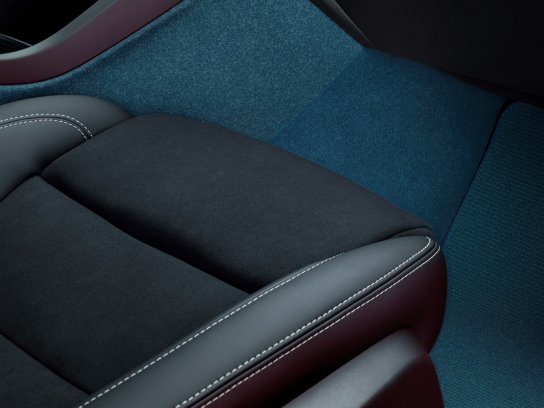
Volvo adopts composite leaf springs on more models
Move driven by a concern about the negative environmental impacts of cattle farming.

8th November 2021
Innovation in Textiles
|
Gothenburg, Sweden
Starting with the new C40 Recharge, all new fully electric Volvo cars will be completely leather-free and by 2030 the car-maker aims to offer only fully electric cars – and all of them leather-free.
By 2025, the company is aiming for 25% of the material in new Volvo cars to consist of recycled and bio-based content, as it looks to become a fully circular business by 2040. As part of its climate action plans, it also aims for all of its immediate suppliers, including material suppliers, to use 100% renewable energy by 2025.
The company’s move towards leather-free interiors is also driven by a concern about the negative environmental impacts of cattle farming, including deforestation. Livestock is estimated to be responsible for around 14% of global greenhouse gas emissions from human activity, with the majority coming from cattle farming.
Instead of leather interior options, Volvo Cars will offer its customers alternatives such as high-quality sustainable materials made from bio-based and recycled sources.
Nordico, for example, is a new interior material created from recycled material such as PET bottles, bio-attributed material from sustainable forests in Sweden and Finland, and corks recycled from the wine industry. This material will make its debut in the next generation of Volvo models.
Volvo will also continue to offer wool blend options from suppliers that are certified to source responsibly, as the company looks to ensure full traceability and animal welfare in its wool supply chain.
“Being a progressive car maker means we need to address all areas of sustainability, not just CO2 emissions,” said Stuart Templar, director of global sustainability at Volvo Cars. “Responsible sourcing is an important part of that work, including respect for animal welfare. Going leather-free inside our pure electric cars is a good next step towards addressing this issue.”

Business intelligence for the fibre, textiles and apparel industries: technologies, innovations, markets, investments, trade policy, sourcing, strategy...
Find out more